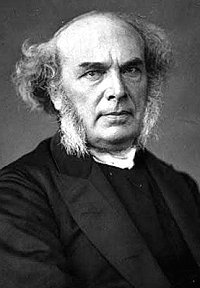
God's processes are not always rapid. His greatest works rise slowly. Swiftness of growth has been one of man's tests of greatness; not so is it with God. His trees grow slowly; the stateliest are the slowest. His creatures grow slowly, year by year; man, the noblest, grows the most slowly of all. God can afford to take His time. Man cannot; he is hasty and impatient. He will have everything to be like Jonah's gourd or like one of those fabled oriental palaces which magicians are said to call up by a word or a stamp out of the sand. He forgets how slowly the palm tree and the cedar grow. They neither spring up in a night nor perish in a night. He forgets the history of the temple; "Forty and six years was this temple in building." He insists that, because it is God's purpose that His saints should be holy, therefore they ought to be holy at once.
It is true that our standard is, and must be, perfection; for our model is the Perfect One. But the question is, "Has God in scripture anywhere led us to expect the rapidity of growth, the quick development of perfection in which some glory and because of the confessed lack of which in others they look down on these others as babes or loiterers? Is there in scripture any instance of a PERFECT MAN, excepting Him who was always and absolutely without sin?
If Christians were perfect, where is the warfare, and the adversary, and the sword, and the shield? Are angels exposed to this warfare when they visit Earth? Or is it not our imperfection that in great measure produces this? And are we anywhere in scripture led to believe that we are delivered from "the body of this death," from the battle of flesh and spirit, from the wrestling with principalities and powers, till death sets us free or our Lord shall come? Yet we are called with a holy calling (II Tim. 1:9) and, as so called, are bound to take the highest standard for our model of life. The slowness nor the swiftness of the progress does not alter the standard nor affect our aiming at conformity to it.